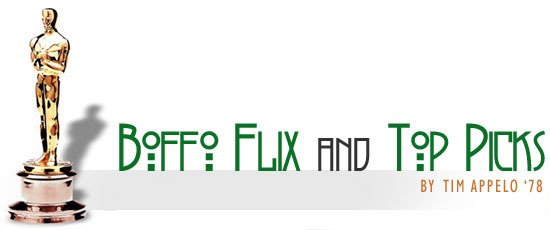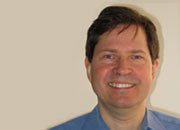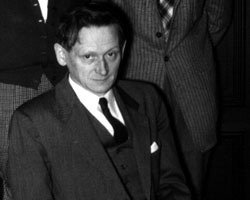Boffo Flix and Top Picks
 |
Biskind's work combines cinematic gossip nobody else gets (Martin Scorsese running down Mulholland Drive screaming naked at a woman who's dumped him) with a shrewd critic's eye and a historian's discernment. In an industry obsessed with the weekend, Biskind writes for the ages. Tim Appelo: How on earth did you get from Swarthmore - not the most Tinseltown-oriented place - to where you are? What did you start out to be?
Peter Biskind: Pre-med. Swarthmore had a film series in Tarble where they had Collection every Friday night, and I went religiously. That was really the beginning of my film education.
Appelo: I'm told that room was built with a sloping floor, so that there could never be a dance there.
Biskind: Is that right? I remember seeing a film there when I was supposedly preparing for my lab test in comparative vertebrate anatomy, and instead I went to this movie. I also used to go to movies in Philadelphia at a theater called The Aardvark, mainly because that put it at the beginning of the alphabet. I remember seeing the early Antonioni movies, like L'Avventura five times.
All the guys I hung out with were mesmerized by Marlon Brando, and when One-Eyed Jacks came out we all went into Philly to see that. There were no film courses, no film departments, no nothing. But there was a professor of astronomy named Peter van de Kamp, quite well known, and he had a huge collection of Charlie Chaplin films that he showed on a regular basis. For me, they were just an oasis of laughter amid all the pressure of classes. I remember those vividly. So despite itself, Swarthmore fed my interest in film.
Appelo: To take a wild metaphorical leap - now you diagnose Hollywood in print, so you're fulfilling your education.
Biskind: Well, I guess you could say that.
Appelo: Your work is psychological. Seeing is Believing puts the '50s on the couch.
Biskind: I actually was thinking of being a psychiatrist or psychoanalyst. And those were the days of New Criticism, so I certainly learned to think about movies as texts. Which is probably something I shouldn't admit. The hands go up: "Oh! It's a visual medium!" I did learn to think very hard about patterns, and there's a lot of textual analysis in Seeing is Believing, even though it's mainly political.
Appelo: Did Swarthmore form you politically?
Biskind: I'm sort of a red-diaper baby, so I was like that anyway. Outside the early sit-ins in Chester, Pa., the explicit political science courses I took were very middle of the road.
Appelo: So how come no med school for you?
Biskind: I liked English, and I got a lot of encouragement, so I went to grad school in English at Yale. I didn't like Yale much, and ended up doing yet more of what I did at Swarthmore: going to a lot of movies instead of going to my classes. I got into Russ Meyer films and drove into New York to see Juliet of the Spirits, the latest Fellini film, the latest Godard.
Appelo: Russ Meyer is a better antidote to grad school.
Biskind: True. Then I went off to teach at UC-Santa Barbara when the '60s hit. I got very into the anti-war movement. I gave 300 As to students one year.
Appelo: To keep people out of Vietnam?
Biskind: Yeah, and also as a dramatic demonstration that we thought grades were useless and meaningless and so forth. Also, I was starting to make films - I used to bring a 16mm camera to English Department meetings, which freaked everybody out. I essentially got fired.
Then I went to Columbia for a year in film studies and got a Ph.D. I was going to be a documentary filmmaker, but I couldn't raise money. And I discovered it was a lot easier and cheaper to sit down at a typewriter. You don't need $50,000 to write an article. So I wrote about film for Film Quarterly, Film Heritage, Take One, Cineaste, Jump Cut. Investigative journalism was a growth industry thanks to Woodward and Bernstein, so I wrote a big article for Rolling Stone about de Antonio's Weatherman film Underground, and for New Times, and took a job with Seven Days, a kind of radical Time or Newsweek, and worked with Barbara Ehrenreich and Dave Dellinger. When that folded, I got a job at Woman's World, a supermarket magazine published in New Jersey, just to have a job.
Appelo: So where did film come in?
Biskind: By a stroke of luck, I got selected to be editor of American Film in Washington. Having been immersed in the anti-war movement, suddenly I found myself in an office in the Watergate and going to embassy parties. Ronald Reagan was in office - it was surreal. But I got to use writers like Alexander Cockburn, Christopher Hitchens, Marcel Ophuls. I even got Salman Rushdie. Of course, no one knew who Salman Rusdhie was, so it was sort of casting pearls before swine. To throw humility to the wind.
Appelo: Then American Film folded.
Biskind: So I jumped to Premiere.
Appelo: That was its 1980s golden age. You made life miserable for us at Entertainment Weekly. The stars would say, "We want to be in the classy book."
Biskind: We published 5, 6, 7,000-word articles, sometimes two on the same movie. A very lavish operation. I was doing a lot of interviews with filmmakers like Beatty, Scorsese, [Francis Ford] Coppola, and [Paul] Schrader, and they were always waxing nostalgic about how great it was in the '70s. The articles were always pegged to an upcoming movie, so I would always end up cutting out all that material. So I finally decided it made sense to use all that material and see if I could portray a whole era.
Appelo: And you certainly did in Easy Riders. The book's splash freed you from nine-to-five office work and got you an enviable gig at Vanity Fair.
Biskind: Try to do a long piece on the 25th anniversary of Reds or the 30th anniversary of Midnight Cowboy - you can't publish those things anywhere else.
Appelo: You also edited The Nation's Hollywood issue.
Biskind: I was having lunch with [then-Nation editor] Victor Navasky '54 sort of joking about how all these magazines have their Hollywood issues - Vanity Fair, GQ - and said The Nation should do a Hollywood issue. And I was appalled to see his eyes light up. So I did two or three. It was fun, especially focusing on the politics of Hollywood.
Appelo: What's your next book?
Biskind: A biography of Warren Beatty. He's really smart and kind of a bridge between the political world and the Hollywood world. He knew absolutely everybody, every politician of every stripe, and he has a great memory. There are not that many interesting people in Hollywood to write about.
Appelo: What about people who write about Hollywood and are worth reading? Can you give us an Honors Exam required reading list?
Biskind: David McClintick's Indecent Exposure: A True Story of Hollywood and Wall Street, Stephen Bach's Heaven's Gate: Dreams and Disasters in the Making of Heaven's Gate, Julia Phillips' You'll Never Eat Lunch in This Town Again, John Gregory Dunne's The Studio, Leo Braudy's The World in a Frame, Thomas Schatz's The Genius of the System. And you have to have Lillian Roth's classic book on John Huston, The Picture.
Biskind's top picks for '06 |
||||||||||||||||||||||||||

 eter Biskind's distinctive mustache, midway between Mark Twain's and Friedrich Nietzsche's, gives him the aspect of a 19th-century revolutionary intellectual improbably loosed upon Hollywood, which he covers for Vanity Fair. Even though he's actually a 1960s sort, he really is a revolutionary presence and diehard scholar (Swarthmore '62, Yale '64, Columbia '76).
eter Biskind's distinctive mustache, midway between Mark Twain's and Friedrich Nietzsche's, gives him the aspect of a 19th-century revolutionary intellectual improbably loosed upon Hollywood, which he covers for Vanity Fair. Even though he's actually a 1960s sort, he really is a revolutionary presence and diehard scholar (Swarthmore '62, Yale '64, Columbia '76).





